When managing your investments, knowing where to hold your assets can be just as crucial as deciding what to invest in. Asset location is a strategic approach that considers the tax implications of various types of accounts and the assets within them. For high-net-worth individuals and families, effectively leveraging asset location strategies can significantly enhance after-tax returns and maximize investment growth. At Virtue Asset Management, our sophisticated approach to personal asset management involves creating customized investment strategies that align with your unique financial goals and tax considerations.
Insights into Tax Environments
Managing complex tax environments is fundamental to effective asset management. Various account types offer unique tax advantages that can affect your investment strategy. Understanding these can help you maximize your after-tax returns and make informed decisions about where to allocate your investments.
Types of Investment Accounts
Investment accounts are broadly categorized into three types:
- Taxable Accounts: These include standard brokerage accounts where taxes on dividends, interest, and capital gains are paid as they occur. The key advantage here is the favorable rate on long-term capital gains, which is lower than ordinary income tax rates.
- Tax-Deferred Accounts: Examples include traditional IRAs and 401(k)s, where investments grow tax-deferred until withdrawals begin in retirement, at this point, withdrawals are taxed as ordinary income.
- Tax-Free Accounts: Roth IRAs and Roth 401(k)s, where contributions are made with after-tax dollars, but all withdrawals, including gains, are tax-free in retirement.
Tax Implications for Different Investment Types
Tax efficiency varies among different types of investments. Stocks are held for over a year, and municipal bonds are typically more tax-efficient. Stocks benefit from lower capital gains taxes, while interest from municipal bonds may be exempt from federal tax. On the other hand, investments like bonds or REITs that generate regular income taxed at higher ordinary income rates should ideally be placed in tax-advantaged accounts to defer or eliminate tax impact. By understanding these implications, investors can make more informed decisions that align with their personal asset management strategies.
Principles of Asset Location
The primary goal of asset location is to place investments in a way that minimizes taxes paid, which involves strategically placing tax-efficient investments in taxable accounts, such as stocks, ETFs, and index funds that you plan to hold for more than a year, to benefit from lower capital gains taxes. On the other hand, tax-inefficient assets like bonds or high-turnover mutual funds should be held in tax-deferred or tax-free accounts to optimize tax savings.
Implementing Asset Location Strategies
Each investor’s tax situation is unique, necessitating personalized strategies. At Virtue, our clients get access to a personal financial planner to analyze their current and anticipated future tax rates to determine the most effective asset location strategy, ensuring it aligns with their overall financial planning. Asset location is dynamic, not a one-time setup. It requires regular adjustments and rebalancing to align with life changes, economic conditions, and shifts in financial goals. If you’re searching for a “certified financial advisor near me,” our team at Virtue is your best bet to ensure your investment strategy remains optimized for your changing needs through our dedicated financial planning and management.

Advanced Techniques for Asset Location
Leveraging advanced strategies like Roth IRA conversions and strategic loss harvesting can further enhance a portfolio’s tax efficiency. Understanding how to function in multiple tax jurisdictions is crucial for those with international investments to avoid double taxation and optimize after-tax returns. It’s important to manage risks such as over-concentration in certain asset types or non-compliance with tax regulations, which can jeopardize an investment strategy. Virtue Asset Management’s fiduciary commitment ensures we provide unbiased, objective financial advice, always prioritizing your best interests while maintaining accurate records and staying abreast of regulatory changes.
Trust Virtue Asset Management for Tailored Financial Advice
Choosing the right financial advisor is key to effectively managing and growing your wealth. Virtue Asset Management is a fee-only fiduciary advisor committed to providing personalized and impartial financial advice tailored to high-net-worth individuals and families. Our comprehensive services include investment management, wealth management, fiduciary duty, tax insurance, personal asset management, retirement planning, income and cash flow projections, risk-reward profile assessment, and developing financial goals. Operating with transparency and integrity, we ensure that every strategy aligns with your financial objectives.
We act in good faith, always putting our clients’ best interests first. For investors and individuals in Illinois searching for a “certified financial advisor near me,” our offices are located in Barrington, Chicago, Glenview, and Oak Park, Illinois, and are staffed with professionals ready to assist you. Contact us today to learn more about how we can help you optimize your financial strategies. Your financial success is our greatest commitment.
Disclosure:
Investing involves risk, including the possible loss of principal and fluctuation of value. Past performance is no guarantee of future results.
This letter is not intended to be relied upon as forecast, research or investment advice, and is not a recommendation, offer or solicitation to buy or sell any securities or to adopt any investment strategy. The opinions expressed are as of the date noted and may change as subsequent conditions vary. The information and opinions contained in this letter are derived from proprietary and non-proprietary sources deemed by Virtue Asset Management to be reliable.
Additional information about Virtue Asset Management is available in its current disclosure documents, Form ADV and Form ADV Part 2A Brochure, which are accessible online via the SEC’s investment Adviser Public Disclosure (IAPD) database at www.adviserinfo.sec.gov, using CRD#283438.
Virtue Asset Management is neither an attorney nor an accountant, and no portion of this content should be interpreted as legal, accounting or tax advice.
